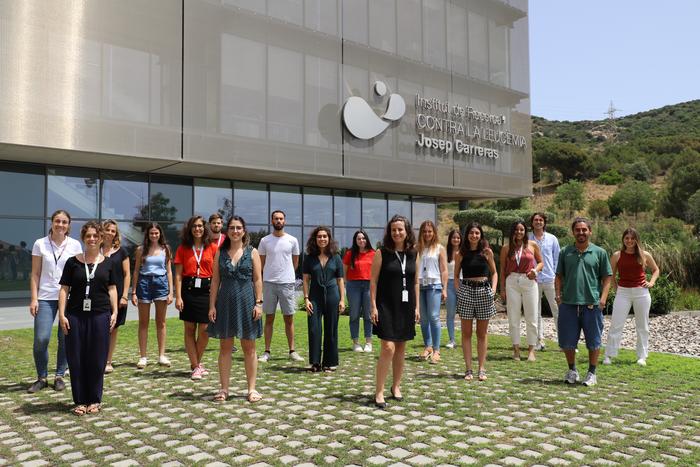Congenital disorders
New research from the Josep Carreras Institute identifies a key protein in blood vessel’s growth
image:
Dr Mariona Graupera’s Endothelial pathobiology and microenvironment Group, from the Josep Carreras Leukaemia Research Institute
view more
Credit: Josep Carreras Leukaemia Research Institute
Blood vessels are responsible of the appropriate and efficient delivery of nutrients and oxygen to the whole body. To do so, they must grow and branch to reach every cell in a process called angiogenesis. The precise regulation of the sprouting and pruning of blood vessels is complex and partly unknown, but endothelial cells, those lining the inner part of the vessels, are known to play an important role.
The growth and proliferation of endothelial cells is promoted by a protein known as mTORC1. Controlling its activity is important to organise a coherent branching of blood vessels and alterations in this process may lead to vascular malformations.
New research from the Mariona Graupera’s lab (Josep Carreras Leukaemia Research Institute), published yesterday at the top journal Science Signaling, has just found that PI3K-C2b, a family member of the PI3K kinases, is responsible of the mTORC1 fine tuning through its inhibition. In a series of experiments using mice models and human cells, researchers found that animals with an inactive form of PI3K-C2a displayed aberrantly enlarged blood vessels. Similarly, when PI3K-C2b was transiently inactivated, endothelial cells appeared larger than usual. Both effects correlated with an increased expression of mTORC1 and were restored upon its external repression.
The findings are important since mutations in components of the PI3K family of proteins are frequent in patients with congenital vascular disorders. Understanding the link between one and the other may be useful to find new therapeutic targets in the future.
The present work was a collaborative initiative including researchers from the Josep Carreras Leukaemia Research Institute, the CNIO, the Universitätsmedizin Berlin, the Max Delbrück Center for Molecular Medicine in the Helmholtz Association and the University College London. Funders of the project were the Spanish Ministry for Science and Innovation, the PTEN Foundation, “La Caixa” Foundation, the Spanish Association Against Cancer and the BBVA Foundation.
Journal
Science Signaling
Method of Research
Experimental study
Subject of Research
Animals
Article Title
PI3K-C2b limits mTORC1 signaling and angiogenic growth
Article Publication Date
28-Nov-2023
Disclaimer: AAAS and EurekAlert! are not responsible for the accuracy of news releases posted to EurekAlert! by contributing institutions or for the use of any information through the EurekAlert system.

